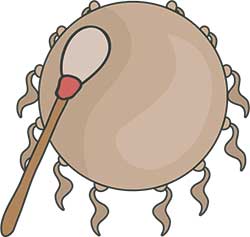So, you’ve found your new horse, possibly at an auction or from a dealer. Maybe you bought it through an ad in a paper or website. You are hopeful that all of the good things you’ve seen and been told are, in fact, true and that this particular horse is just what you’ve been looking for. You get the horse home or to the boarding stable and now the work begins.
You, of course, want to get started on your goals right away. Maybe you want to start preparing for the next show or rodeo season, or you want to hit the trails as soon as possible this next spring. You know what you want to do and how you want your new mount to work with you. There’s just one problem – your new companion in this program hasn’t signed up for the agenda yet. And after a few working sessions you’re not sure this is actually a good match. Does this horse even want to work with or for you and how do you begin to develop a mutually trusting relationship? The first thing is to start by looking at it from the horse’s point of view.
Depending on where you found this horse, you may know a lot or almost nothing about its history or prior relationships. I’m not talking about training, I’m talking about who owned the horse previously and how it was treated. I’m talking about its position in the herd and whether it had any special buddies in the pasture. Some horses change hands several times and are moved from stable to stable or even from state to state. And then we wonder why they don’t trust us immediately when we start putting demands on them.
When a horse is sold it is a very traumatic experience for them. When we get a dog or a cat, the assumption is that it will be a member of the family for its entire life. Not so with horses. Our current mount may become physically unable to handle whatever it is that we want to do. And children have this tendency to outgrow their childhood mounts and turn to other interests or go away to school, leaving their equine companion forgotten in the pasture or trucked off to the auction. Most families cannot afford to keep a pasture pony. The horse, however, often grieves the loss of that close relationship and doesn’t understand why its no longer needed. Every time this happens the horse becomes more reluctant to form another close bond. How does it know if this is its forever home or will it be shipped off to a new place again? Why should it risk forming new friendships in the pasture or with the new owner when life is so uncertain?
Its important to start slowly and build your relationship day by day. There are several things you can do to promote friendship and trust more quickly.
- Observe how the new horse acts in the barn and the pasture or paddock. Look for clues that indicate fear, apprehension or depression. Is the horse sad at leaving its former home?
- Spend a lot of time grooming and doing ground work. Handle the horse in non-threatening situations and give praise and treats for the behavior you want.
- Talk to your horse either out loud or telepathically and let them know what you are doing and why. Be honest. If this is their forever home, tell them right up front so they no longer have to worry about it. If it is not, let them know what you expect from them and how they will be treated in return.
- Use essential oils or flower essences to help the horse adjust to its new situation.
- Don’t assume that its former tack fits correctly. You may have to experiment until you find the right bit/saddle/shoes, etc.
- Talk to an animal communicator to find out how the horse feels about the change and what you can do to help them adjust.
- Check with a chiropractor or equine masseuse to make sure the horse is not hurting anywhere and that they are physically capable of doing the work you want.
These are just a few suggestions of what you can do to help your new partner decide to take that risk to trust another human owner. Remember that each animal is an individual just as people are. The key to a great relationship is honesty and mutual respect. Take the time to build the partnership and trust will follow.
Mary Stoffel worked as a corporate project manager for twenty-two years and holds a Master’s Degree in Information Media. A professional animal communicator since 1995, she has organized and conducted basic and advanced animal telepathy workshops since 1999. Mary’s mission is to facilitate communication and understanding between people and their animal companions through classes, lectures and personal consultations. She is a certified energy healing practitioner and a shamanic practitioner, with training through the International Foundation for Shamanic Studies. She uses telepathy, energy interference patterning, essential oils and shamanic healing methods to help people and animals deal with holistic health issues.

